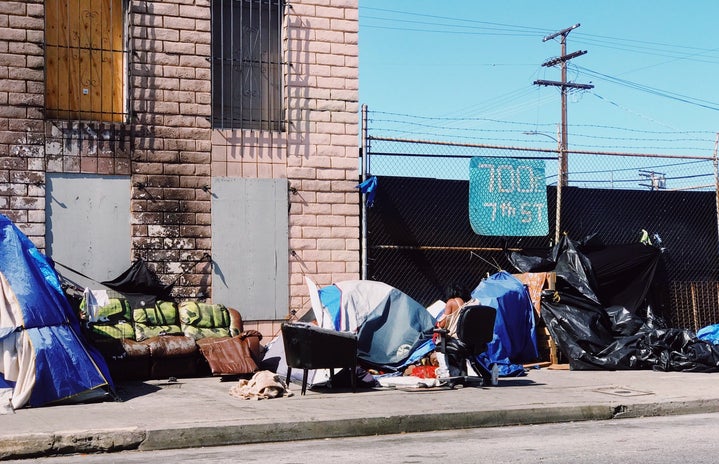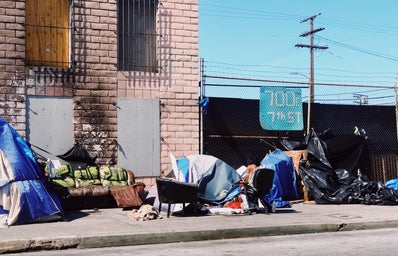For context, in 1961, the inauguration of the Luz bus station in São Paulo, Brazil, transformed the neighborhood into the main entry point to the city, attracting a large influx of migrants and promoting the growth of informal commerce. As a result, the area became bustling and also polluted. Many shops opened to serve travelers, and the neighborhood established itself as a work hub. Over time, wealthier families moved to more affluent areas such as Avenida Paulista and Faria Lima.
Then, in 1982, the opening of the Tietê bus station led to the closure of the Luz station, resulting in a sudden decline of hotels and businesses, which were quickly occupied by homeless individuals. Where once there were residents, it became a major consumption point for crack, creating what we know as “Cracolândia“.
According to journalist Matheus Brum, first appeared in a report by the newspaper O Estado de S. Paulo in 1995: “The streets of the Santa Ifigênia neighborhood known as Cracolândia continue to be patrolled by police. The old mansions are being used by traffickers to prepare crack stones”, a section of the report stated regarding the arrest of traffickers following the inauguration of the Crack Suppression Police Station in São Paulo.
Candidates’ Proposals to Contain the Expansion of Cracolândia
Ricardo Nunes (MDB)
The current mayor states that his campaign emphasizes a multisetorial approach in the central region, integrating actions in security, health, social assistance, and human rights. According to Ricardo Nunes, this strategy has led to a significant reduction in the number of users and increased access to voluntary interments for dependents. The campaign aims to continue these actions and integrate efforts with state security forces to combat drug trafficking and crime.
Junior Fagotti, a collaborator in Nunes’ reelection campaign and acting municipal secretary of Urban Security, highlighted the importance of integrating the GCM (Metropolitan Civil Guard), Military Police, and Civil Police in combating crime and maintaining urban order. He noted the creation of the Unified Public Security System and the expansion of the Delegated Operation as examples of efforts to ensure coordinated and effective action from security forces.
Guilherme Boulos (PSOL)
Guilherme Boulos‘ campaign outlines four main proposals for the region, including the establishment of an Integrated Office for “Cracolândia”, linked to the Mayor and involving all relevant secretaries. Mobile units of the Psychosocial Care Centers will be set up in the area, staffed with mental health professionals.
Also, a special urban security inspectorate will be created in the neighborhoods of Luz, Campos Elíseos, and Santa Efigênia, focusing on safety and social well-being. This will be done in partnership with state security forces to combat drug trafficking and illegal scrap yards.
Boulos also aims to implement a social recovery and job creation program for former substance dependents, including training and partnerships with businesses. He plans to create a social recovery program for former substance dependents undergoing treatment in Mobile CAPS, promoting training and seeking connections with local businesses, while also establishing training policies aimed at recyclers and cultural and artistic work in the area.
State Deputy Antonio Donato from the Workers’ Party (PT) was appointed to represent Boulos. Donato emphasized that the campaign views “Cracolândia” not only as a security issue but also as a matter of public health, social assistance, employment, and income.
Pablo Marçal (PRTB)
Pablo Marçal states to resolve the situation in “Cracolândia”: “We need a comprehensive and integrated approach involving rehabilitation, prevention, public safety, and urban revitalization. We have the responsibility to address Crackland with compassion, respect, and concrete actions.”
The candidate commits to a complete and sustainable rehabilitation process, avoiding the politicization of the issue. He proposes investments in education, sports, and employment opportunities to prevent vulnerability. Marçal also advocates for public-private partnerships, citing an NGO that has already helped over 3,500 people off the streets, and promises to support and expand similar initiatives. He then asserts that compulsory internment is not the solution, mentioning working alongside with the São Paulo police: “To suffocate trafficking and prevent the proliferation of organized crime among users, using intelligence and technology.”
Tabata Amaral (PSB)
The candidate Tabata Amaral asserts the need to address both the “criminal” and the “ill”, emphasizing that it is a criminal system that must be suppressed. She promises to “dismantle” the system through an integrated strategy based on four pillars: public safety, urban planning, health, and social assistance.
In public safety, Tabata proposes monthly meetings with security force commanders to define and monitor goals, using technology and intelligence to combat the organized crime economy. Create a Restorative Justice Center to promptly address drug-related crimes and implement electronic integration mechanisms between the GCM and the Judiciary to track individuals who violate judicial measures.
In health, Tabata aims to enhance specialized care for substance dependence and mental health by increasing the number of doctors, nurses, psychologists, and psychiatric beds while adhering principles to humanized and individualized treatment .
Lastly, in social assistance, she emphasizes the importance of teams that know dependents by name and seek to reconnect them with their families, stressing that understanding each person’s story is crucial to providing the necessary support and addressing the problem at its roots.
José Luiz Datena (PSDB)
Known for his role as a journalist and TV show host, José Luiz Datena, now a mayor candidate, promises to “tackle this issue with the firmness and authority it deserves” and claims that “no one in this electoral race has more capacity and experience to confront crime than I do.”
Datena advocates for the active involvement of the Metropolitan Civil Guard in protecting the people of São Paulo, calling that GCM is granted by police powers, including intelligence and investigation services. He proposes increasing monitoring through facial recognition cameras around the city and expanding the union of the Delegated Operation with the Military Police to enhance efforts against criminal activities
The candidate emphasizes the importance of preventing drugs from reaching the 72 “Cracolândias” in São Paulo, seeking solutions in collaboration with state and federal governments. In addition to combating trafficking, he proposes for providing dignified treatment and more shelters for substance dependents, emphasizing that people should be treated with respect and not imprisoned in ghettos.
__________
The article above was edited by Mariana De Olivera.
Liked this type of content? Check Her Campus at Casper Libero‘s home page for more!


